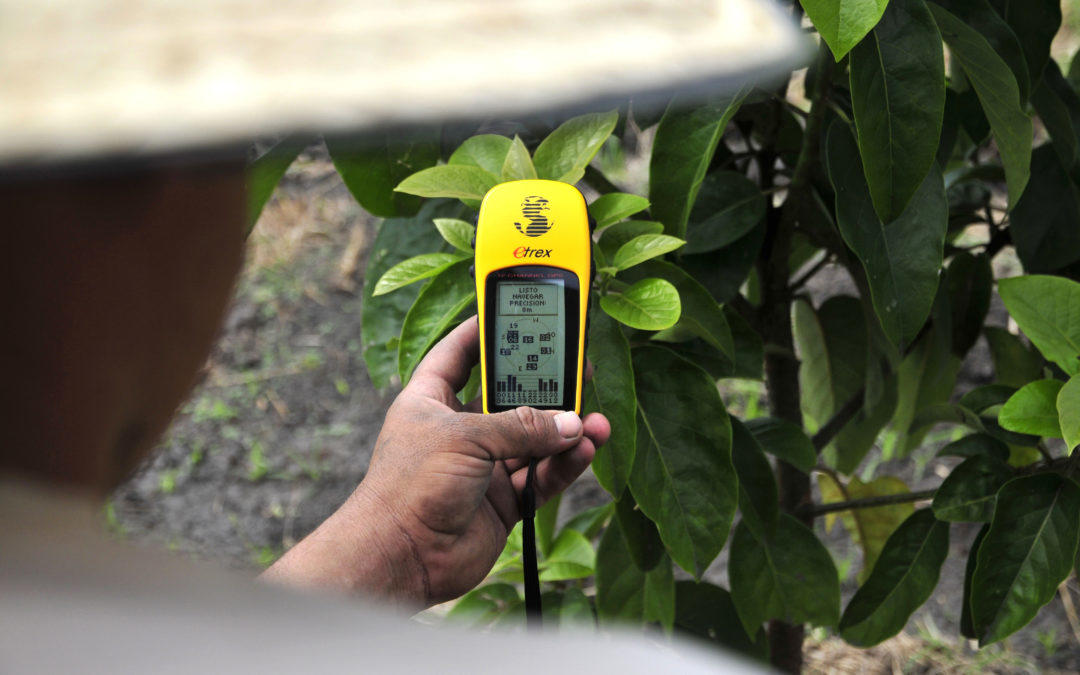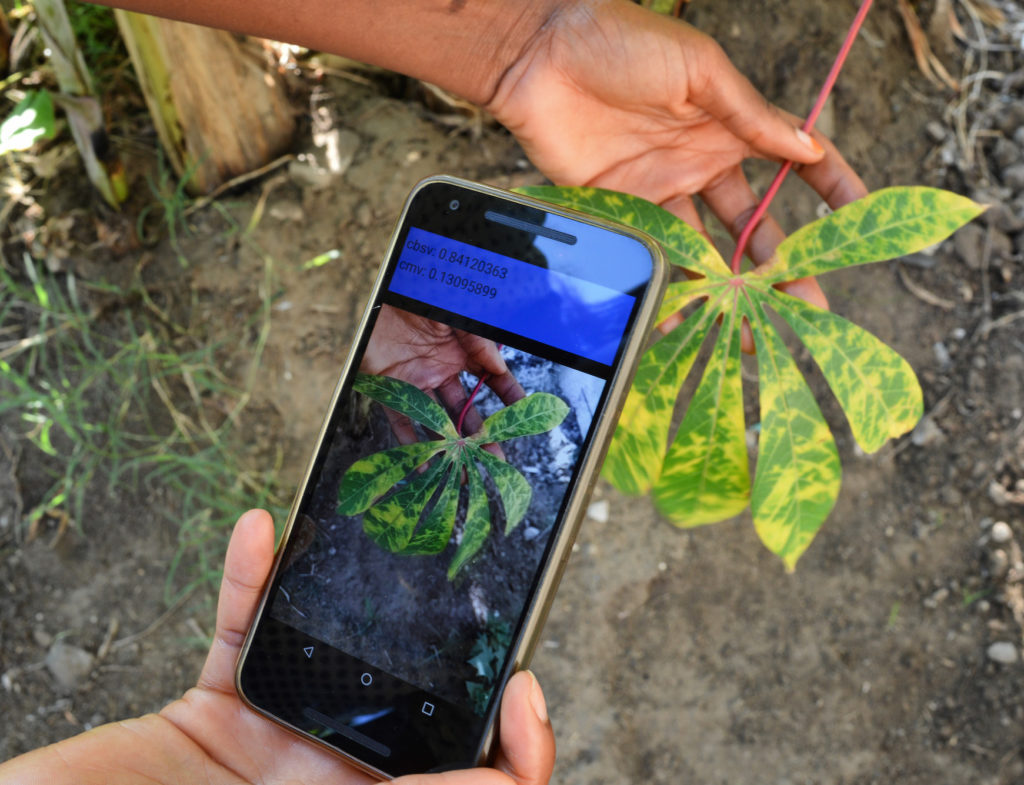At the vanguard of Big Data to defeat hunger in the world

The digital transformation of economies and societies in recent years has opened new, important possibilities for agriculture. In this context, we see the emergence of CGIAR’s Platform for Big Data in Agriculture, which aims to positively transform agricultural research, helping to generate powerful data management innovations that can revolutionize agriculture in developing countries.
By: Sylvia Pineda / Edition: José Antonio Arana.
This platform accelerates and promotes the best use of data and incentivizes researchers at CIAT and other CGIAR centers, so that they may share information in a secure manner, such that it may serve as a support for making progress toward the millennium development goals, such as the eradication of extreme poverty and hunger.
To achieve this, the Big Data Platform functions as a cross-cutting program for all the research centers of the CGIAR System that work in a collaborative manner with the agriculture sector to incentivize the management of data and to obtain results. Like Google, it has a search engine that provides access to the databases where, by keying in a word, all the publications and associated data are listed. At this time, there are 2,000 data sets and 50,000 publications that can be found by using this tool.
Big Data and a revolution under way
The vision of the platform is to continuously improve the use of tools for collection and diffusion of data, until a digital transformation of CGIAR is achieved, thus carrying out a digital revolution in the agricultural sector in general, which may serve to develop new ways in which the research projects contribute to the reduction of hunger and poverty, especially among the most vulnerable farmers.
“Currently, the use of analytical technology for research has made it possible for us to improve the recommendations of the extension agents. Technologies such as mobile telephones or social networks make it possible for us to interact more every day, even with very rural producers, in ways that were simply not possible even five years ago,” explained Brian King, leader of CGIAR’s Big Data Platform.
At this time, all the Centers have some funds to organize their data and they are working on implementing the CGIAR’s Open Data policy. In fact, there are six working groups or communities of practice distributed among four CGIAR Centers (CIAT, CIMMYT, Bioversity, and IFPRI) that interact with the public and private networks in order to improve the use of data in agriculture.

These communities of practice are made up of staff from the Centers and from other institutions (public, private, academic, etc.) that are interested in the topic. The work with these groups is ongoing and it is strengthened by topics such as modeling, geospatial analysis, ontology (categorization of human wisdom) and the best use of data for agronomy.
Brian King explains that with the current technology, in terms of research, CIAT has the perfect conditions to become a model in the use of data for agricultural research, specifically in the management of data regarding transactions generated by the barcodes, anonymized data from the mobile networks, and a whole series of digital traces and footprints that are generated in the course of modern social and economic life that open up new possibilities for us to measure and understand the sustainable food systems at a scale in a way that was not possible before.

A promising future
The team leading the Big Data Platform will continue at the vanguard, working to achieve global recognition that would position CGIAR as a pioneering organization in the collection and utilization of digital technologies for agriculture.
The next step is to prepare for the convention to be held in October, where all that has been done in the past year will be consolidated, and an agenda will be set for what the Platform and the general sector must do in the near future. This will be a favorable space for CGIAR to have a leading voice in data management.
Nevertheless, the leadership of the CGIAR System does not mean that it can do everything alone. New alliances and collaborations must be incentivized with governments, digital entrepreneurs, agro-industry, and other researchers in order to accelerate digitization of the sector as a way of broadening the impact of the research in various areas such as climate adaptation, sustainable production, and decision making on the part of farmers.
For now, we have a glimpse of a promising future for this Platform, which is succeeding in bringing together, organizing, and inspiring improvements in the generation, access, and management of data at CGIAR.

Brian King, a visionary of Big Data
Before coming to CIAT as the leader of CGIAR’s Big Data Platform, Brian King was working as a technical specialist in agriculture and digital technologies at the United States Agency for International Development (USAID), and recalls that when the announcement was made for the position that he currently occupies, it seemed to him to be an interesting opportunity to have a more ambitious experience that would give him the opportunity to work on projects at a worldwide scale.
Previously, that is, two years before, Brian had visited CIAT to learn about the work that was being developed in data collection and organization.
His relationship with data started from the moment he joined as a volunteer in the role of agricultural extensionist in West Africa and, sometime later, he became a trainer, a vocation that was born with him since he comes from a clearly agricultural family of rice farmers.
Being in Africa, in 1996 he found an opportunity to work with USAID, with which he entered the digital world, since he had to coordinate a program that was seeking to establish Internet services in 20 countries (in many for the first time) of sub-Saharan Africa, negotiate new policies for connectivity, and train the first users of the internet, for purposes of development. In this way, Brian became a specialist in a new discipline that was just being defined: digital development, that is, how to use digital tools to target economic and social development objectives. Furthermore, in his academic history, he has an MBA and a Master’s degree in Hispanic Literature.
For Brian, what excites him the most about agricultural digital development is that it spans diverse but also complementary fields such as research, agricultural extension, adoption of innovations, communications, culture, and, of course, technology.
“Big Data has the potential to push the limits of what is possible and to transform the media of agricultural life in developing countries,” said Brian King during the Big Data Convention held at CIAT in September 2017. His conviction and his leadership will enable the Big Data Platform to take global leadership in the organization of open data, calling on partners to develop innovative ideas through inspiring projects.
